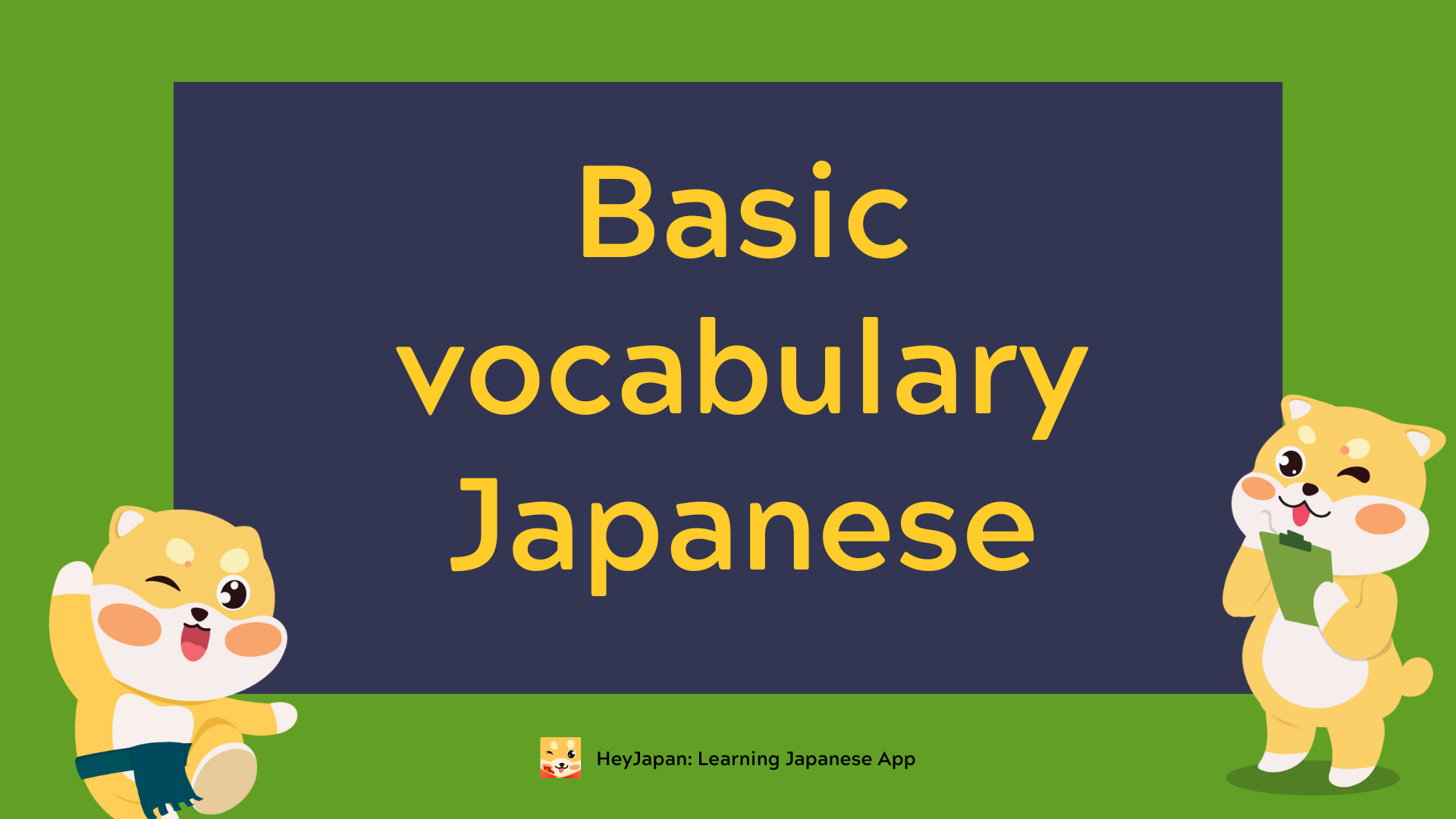20+Japanese Caregiver Vocabulary - essential daily tasks
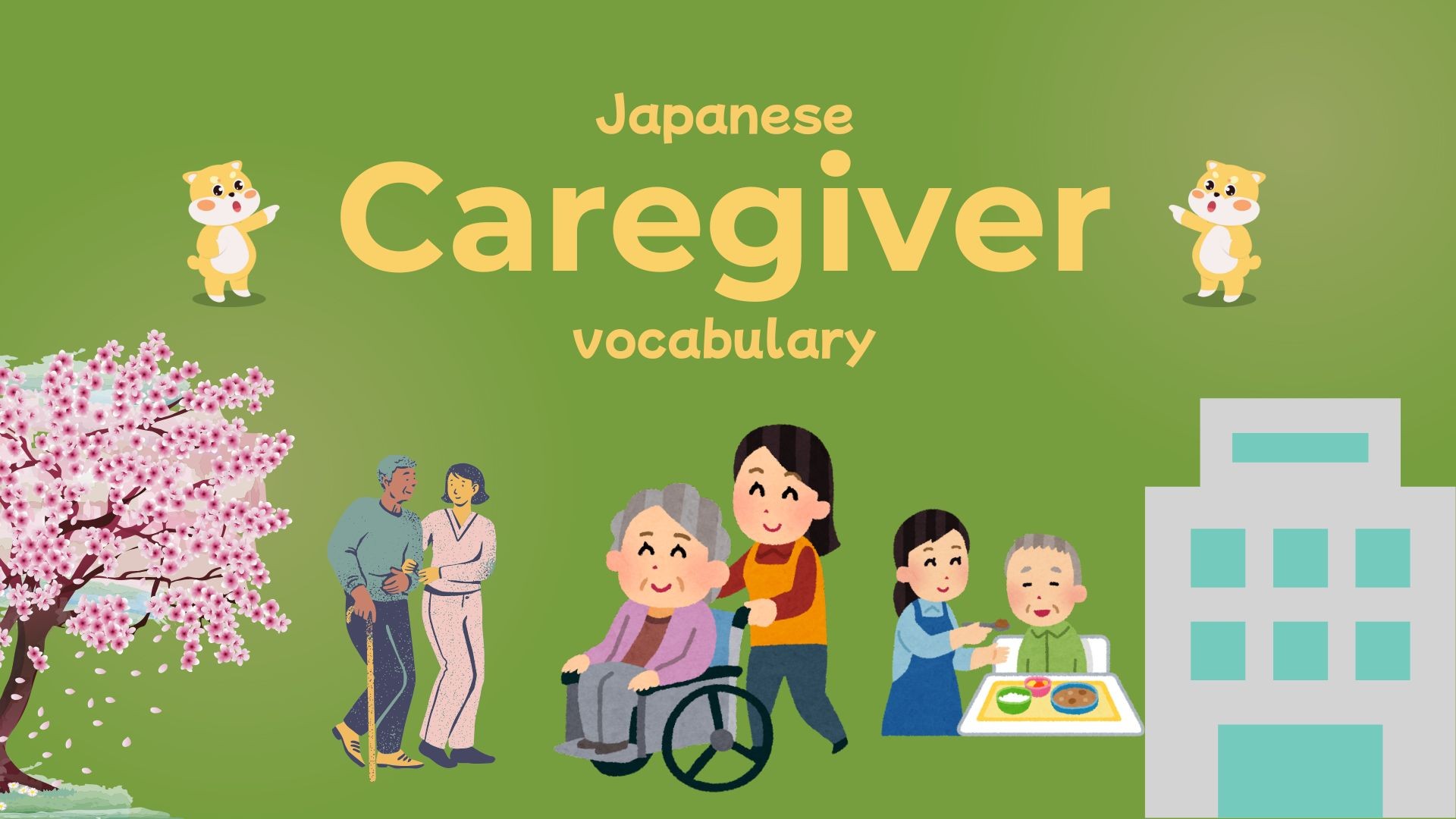
Quick view
In Japan, the term 介護 (Kaigo) or caregiver refers to the act of providing care or assistance to elderly people, individuals with disabilities, or those who need help with daily activities.
Caregivers are responsible for a wide range of tasks such as: Personal care: Helping with bathing, dressing, eating, and mobility; health monitoring: Checking vitals, administering medication, and assisting with physical therapy; Emotional support: Offering companionship, talking, and helping reduce feelings of isolation.
Understanding the specific vocabulary related to caregiving is crucial in providing effective support for elderly individuals.
Common Health Conditions in the Elderly
As a caregiver, you will likely encounter elderly individuals who suffer from various health conditions - 高齢者によく見られる病気 (Kōreisha ni yoku mirareru byōki). Some common diseases and conditions to be familiar with include:
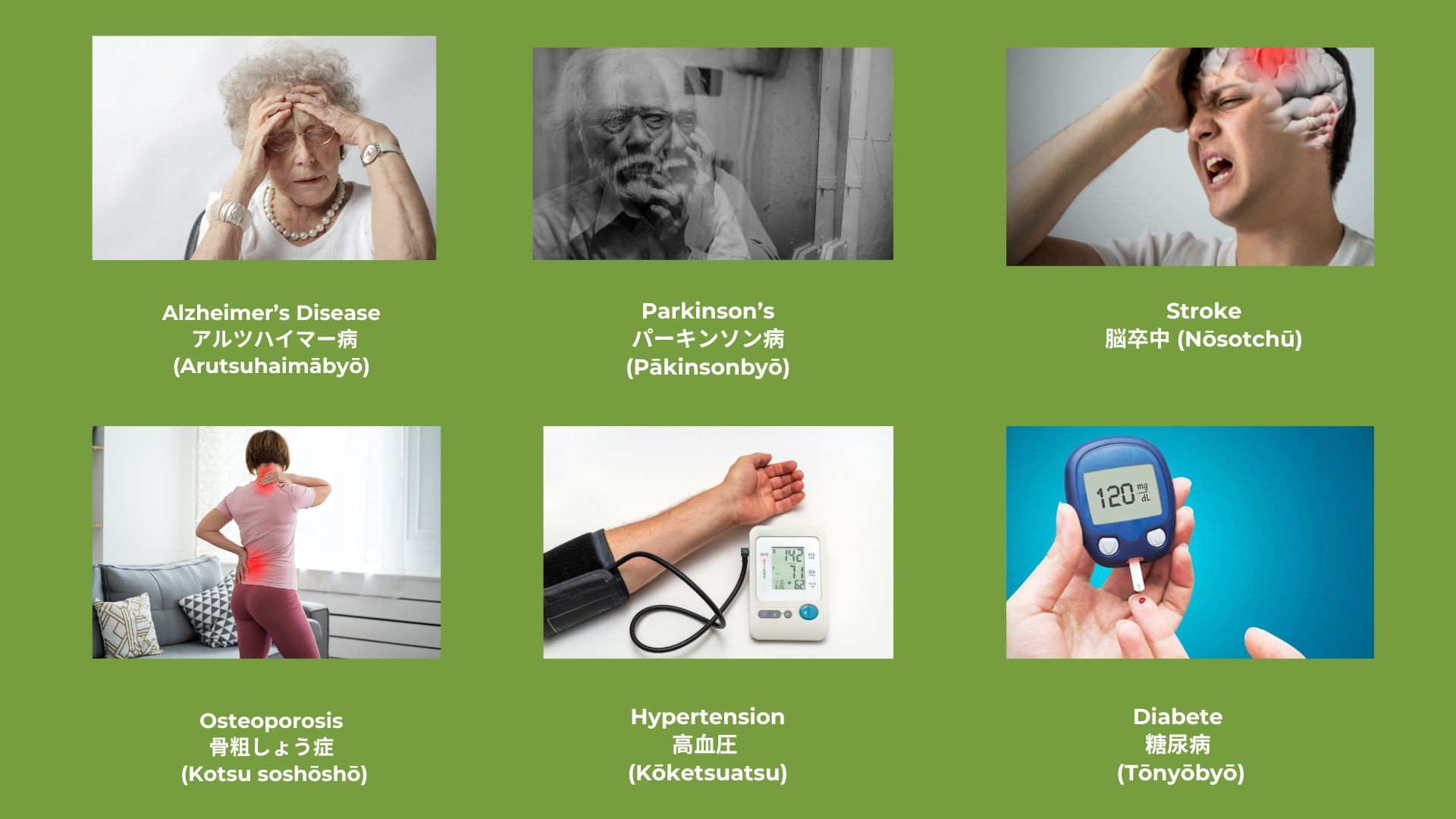
-
Alzheimer’s Disease – アルツハイマー病 (Arutsuhaimābyō)
A neurodegenerative disease that causes memory loss and cognitive decline.
-
Parkinson’s Disease – パーキンソン病 (Pākinsonbyō)
A movement disorder that causes tremors, rigidity, and bradykinesia (slowness of movement).
-
Stroke – 脳卒中 (Nōsotchū)
A medical emergency where the blood supply to the brain is interrupted, leading to potential paralysis and other complications.
-
Osteoporosis – 骨粗しょう症 (Kotsu soshōshō)
A condition where bones become fragile and more likely to break.
-
Hypertension – 高血圧 (Kōketsuatsu)
High blood pressure, which can lead to cardiovascular disease and strokes.
-
Diabetes – 糖尿病 (Tōnyōbyō)
A chronic condition that affects the body's ability to regulate blood sugar.
Example Sentences:
- おばあさんはアルツハイマー病を患っています。 (Obāsan wa arutsuhaimābyō o wazuratteimasu.)
→ The grandmother suffers from Alzheimer’s disease.
- おじいさんは高血圧があります。 (Ojīsan wa kōketsuatsu ga arimasu.)
→ The grandfather has high blood pressure.
Daily Action Verbs
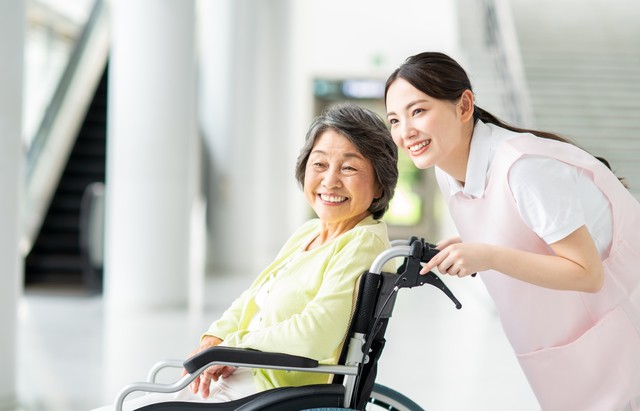
As a caregiver, you'll often perform specific actions - 日常的な動詞 (Nichijō-teki na dōshi) that help elderly individuals with daily tasks. Below are some essential verbs that you will frequently use in caregiving:
|
English |
Japanese (Kanji) |
Romaji |
|---|---|---|
|
To help |
手伝う |
てつだう (Tetsudau) |
|
To assist |
援助する |
えんじょする (Enjō suru) |
|
To wash/bathe |
洗う/入浴する |
あらう/にゅうよくする (Arau/Nyūyoku suru) |
|
To feed |
食事を与える |
しょくじをあたえる (Shokuji o ataeru) |
|
To dress |
服を着る |
ふくをきる (Fuku o kiru) |
|
To move/transfer |
移動する |
いどうする (Idō suru) |
|
To help walk |
歩行を助ける |
ほこうをたすける (Hokō o tasukeru) |
|
To monitor/check health |
健康をチェックする |
けんこうをちぇっくする (Kenkō o chekku suru) |
|
To provide medication |
薬を与える |
くすりをあたえる (Kusuri o ataeru) |
Example Sentences:
- おじいさんをお風呂に入れてあげます。 (Ojīsan o ofuro ni irete agemasu.)
→ I will help the grandfather take a bath.
- 食事を与えて、薬を飲ませます。 (Shokuji o ataete, kusuri o nomasemasu.)
→ I will feed and give the medication.
Body Parts
Being familiar with body parts - 体の部位 (Karada no bui) is essential as a caregiver since you will often need to assist with physical movements, check for discomfort, or communicate health issues.
|
English |
Japanese (Kanji) |
Romaji |
|---|---|---|
|
Head |
頭 |
あたま (Atama) |
|
Eyes |
目 |
め (Me) |
|
Ear |
耳 |
みみ (Mimi) |
|
Mouth |
口 |
くち (Kuchi) |
|
Hands |
手 |
て (Te) |
|
Legs |
足 |
あし (Ashi) |
|
Back |
背中 |
せなか (Senaka) |
|
Stomach |
胃 |
い (I) |
|
Heart |
心臓 |
しんぞう (Shinzō) |
Example Sentences:
- おばあさんの足が痛いと言っています。 (Obāsan no ashi ga itai to itteimasu.)
→ The grandmother says her leg hurts.
- おじいさんの目をチェックします。 (Ojīsan no me o chekku shimasu.)
→ I will check the grandfather's eyes.
Health Monitoring Verbs
Monitoring health is an essential part of caregiving. Below are some verbs related to health checks:
|
English |
Japanese (Kanji) |
Romaji |
|---|---|---|
|
To measure (temperature) |
体温を測る |
たいおんをはかる (Taion o hakaru) |
|
To check blood pressure |
血圧を測る |
けつあつをはかる (Ketsuatsu o hakaru) |
|
To give medicine |
薬を与える |
くすりをあたえる (Kusuri o ataeru) |
|
To monitor health |
健康をチェックする |
けんこうをちぇっくする (Kenkō o chekku suru) |
|
To assist with exercise |
運動を手伝う |
うんどうをてつだう (Undō o tetsudau) |
Example Sentences:
- 血圧を測ります。 (Ketsuatsu o hakarimasu.)
→ I will check your blood pressure.
- お薬を飲んでください。 (Okusuri o nonde kudasai.)
→ Please take your medicine.
Sentences used daily by caregivers:
Statements
-
おはようございます、今日はどうですか?
(おはようございます、きょうはどうですか, Ohayou gozaimasu, kyou wa dou desu ka?)
Good morning, how are you today? -
今日は元気そうですね。
(きょうはげんきそうですね, Kyou wa genki sou desu ne)
You look well today. -
お昼ごはんの時間ですよ。
(おひるごはんのじかんですよ, Ohirugohan no jikan desu yo)
It’s time for lunch. -
薬を飲んでくださいね。
(くすりをのんでくださいね, Kusuri o nonde kudasai ne)
Please take your medicine. -
少し休んでください。
(すこしやすんでください, Sukoshi yasunde kudasai)
Please rest for a while. -
お手伝いが必要な場合は教えてください。
(おてつだいがひつようなばあいはおしえてください, Otetsudai ga hitsuyou na baai wa oshiete kudasai)
Please let me know if you need help. -
お風呂に入る時間です。
(おふろにはいるじかんです, Ofuro ni hairu jikan desu)
It’s time for your bath. -
お体はどうですか?痛みはありませんか?
(おからだはどうですか?いたみはありませんか, Okarada wa dou desu ka? Itami wa arimasen ka?)
How is your body? Are you in any pain? -
お着替えを手伝いましょうか?
(おきがえをてつだいましょうか, Okigae o tetsudaimashou ka?)
Would you like help changing clothes? -
トイレに行きたいですか?
(といれにいきたいですか?, Toire ni ikitai desu ka?)
Do you want to go to the bathroom?
Questions
-
今日はどんな気分ですか?
(きょうはどんなきぶんですか, Kyou wa donna kibun desu ka?)
How do you feel today? -
何か不安なことがありますか?
(なにかふあんなことがありますか, Nanika fuan na koto ga arimasu ka?)
Is there anything you're worried about? -
食事は召し上がれますか?
(しょくじはめしあがれますか, Shokuji wa meshiagaremasu ka?)
Can you eat your meal? -
寝かせていただいてもいいですか?
(ねかせていただいてもいいですか, Nekasete itadaite mo ii desu ka?)
May I help you lie down? -
お水をお持ちしましょうか?
(おみずをおもちしましょうか, Omizu o omochi shimashou ka?)
Would you like some water? -
痛みがある場合はお知らせください。
(いたみがあるばあいはおしらせください, Itami ga aru baai wa oshirase kudasai)
Please let me know if you feel any pain. -
今、何かお手伝いできることはありますか?
(いま、なにかおてつだいできることはありますか, Ima, nanika otetsudai dekiru koto wa arimasu ka?)
Is there anything I can help with right now? -
お手洗いに行きたいですか?
(おてあらいにいきたいですか, Otearai ni ikitai desu ka?)
Do you want to go to the restroom? -
お風呂に入れましょうか?
(おふろにはいれましょうか, Ofuro ni hairemashou ka?)
Shall I help you with the bath? -
お薬はもう飲みましたか?
(おくすりはもうのみましたか, Okusuri wa mou nomimashita ka?)
Have you taken your medicine yet?
Learn more:
Related post
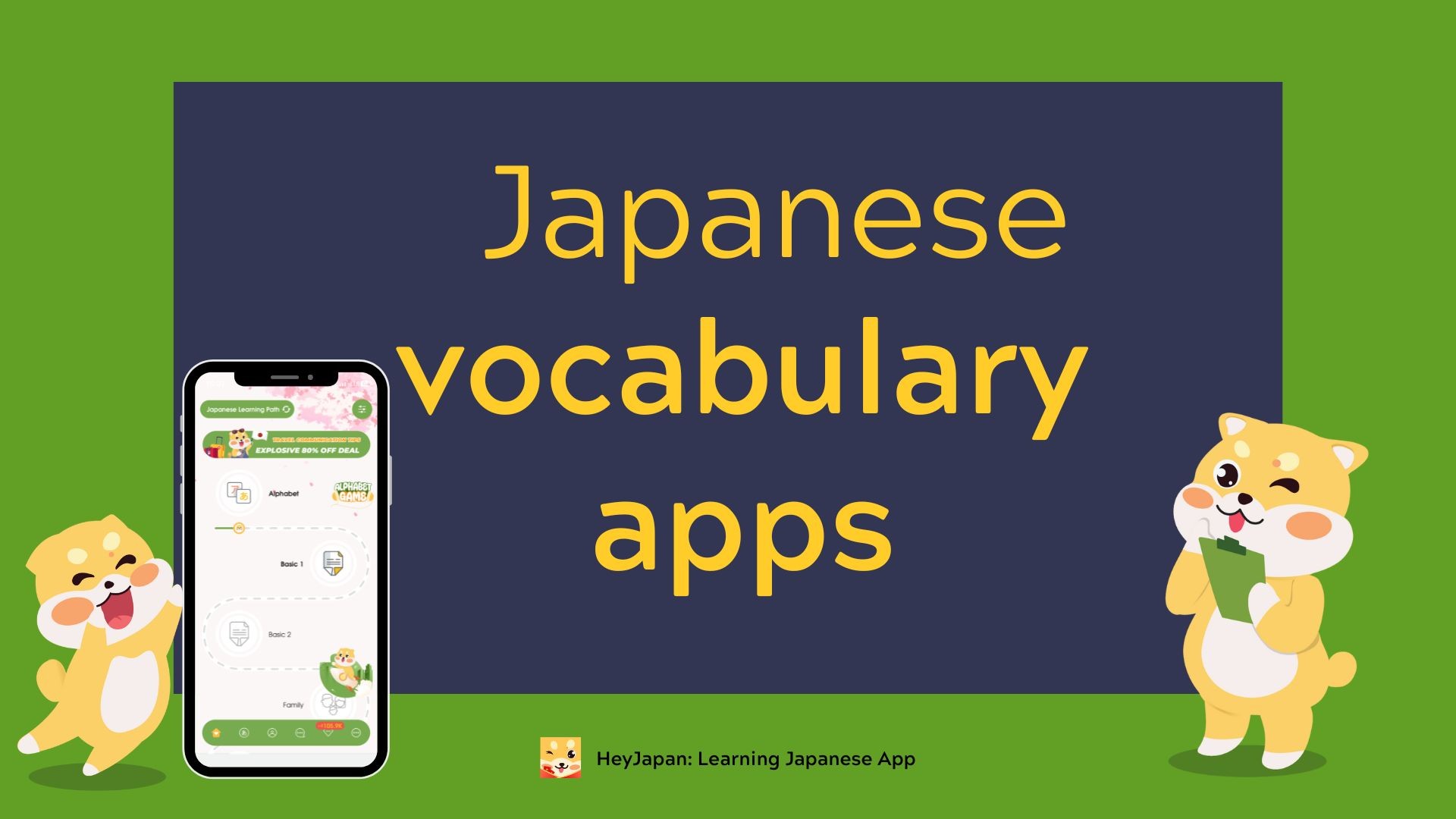
Best Japanese Vocabulary Apps to Boost Your Language Skills
